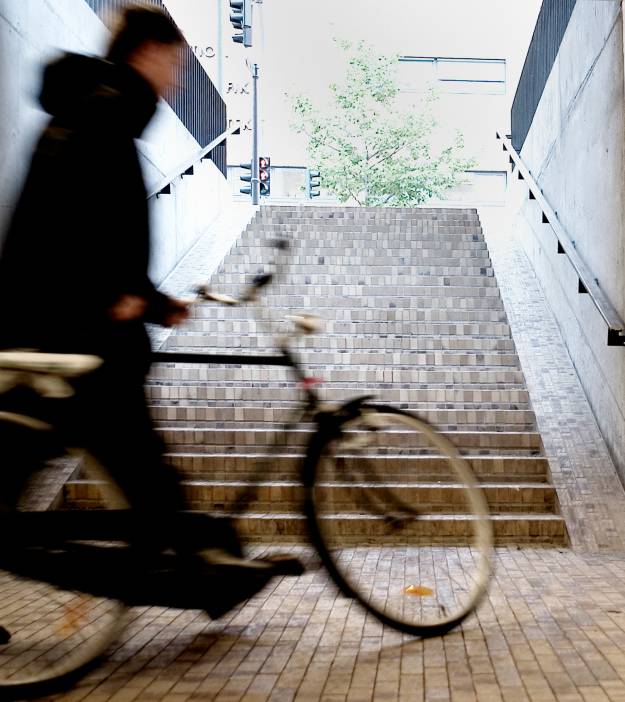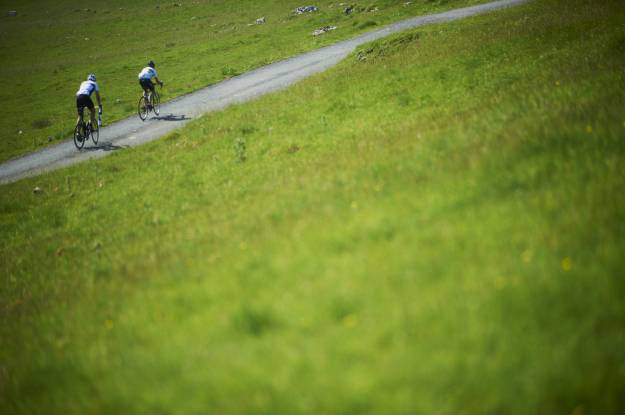The All Party Parliamentary Cycling Group set up the 'Get Britain Cycling' inquiry to look at the barriers which are preventing more people from cycling in the Britain. Cycling makes up 2% of all journeys in Britain, compared to 27% in the Netherlands and 18% in Denmark. Some European towns have more than 50% of all journeys made by bike.

The Inquiry in Brief
The All Party Parliamentary Cycling Group (APPCG) will start taking evidence for an inquiry entitled: “Get Britain Cycling” on the 23rd January. There will be six evidence sessions with a panel of MPs and Peers who will take verbal evidence from a selected group of witnesses. The last session will be on the 6th March.
A report with recommendations will be written by Professor Phil Goodwin and will be published in mid-April.
To find out more about the inquiry click here.
Our Involvement
The inquiry was launched on 5 November 2012, a year on from the tragic incident involving The Times’ journalist Mary Bowers, which triggered the newspaper’s ‘Cities Fit for Cycling’ campaign. British Cycling has been heavily involved in the Get Britain Cycling Campaign since its inception, helping to lobby MPs to sign up to APPCG co-chair Julian Huppert’s Early Day Motion and submitting written evidence.
Martin Gibbs, British Cycling Policy and Legal Affairs director and Chris Boardman will be giving oral submissions during the inquiry.
Chris Boardman said: “I am pleased to be asked to give oral evidence to the Inquiry. What we need to do is stop and say ‘where do we want to get to?’ And that is what this Inquiry is about, identifying what is putting people off riding their bikes so that we can make the policy choices that will make cycling an attractive choice for everyone. That’s the sort of country I want to live in and with political leadership, commitment and investment we can get there.”
Martin Gibbs, Policy and Legal Affairs Director said: “British Cycling is really pleased to be involved in the much needed Get Britain Cycling inquiry and to support the All Party Parliamentary Cycling Group. In many ways cycling is in great shape in this country, we’ve had fantastic success at the Olympics and Paralympics and in July we had the first British winner of the Tour de France.
"Record numbers of people are being inspired to get on their bikes but we’ve got a long way to go to make cycling as appealing and commonplace as it is in countries like Holland and Denmark. We need the government to show real leadership on cycling and put it at the heart of policy.”
British Cycling's Written Submission
British Cycling's written submission includes the following key points:
Olympic Legacy: In the 20 years since Chris Boardman’s gold medal in Barcelona, the first cycling medal in 72 years, we have established ourselves as world class in the sport of cycling. The challenge now is to translate this success into an Olympic legacy of a cycling nation.
Putting cycling at the heart of government policy: British Cycling believes it is common sense that to encourage more people to cycling, transport policies must take account of and prioritise cycling. If Britain is to be a cycling nation like the Netherlands or Denmark, where cycling is considered a normal everyday choice for everyone, then political leadership is essential to make the necessary policy choices.
Mutual respect: Our members believe that an essential element to improving cycling in this country is increasing the level of mutual respect on the roads. Good behaviour for all road users should be more rigorously encouraged.
Justice review: British Cycling is calling on the Ministry of Justice for a complete review of how the justice system operates in cases of bad driving when people are hurt on the roads. We believe that it is often the case that these incidents are dealt with in a way that sends out the wrong message about how well the law protects people when they are on their bikes. Find out more on our justice review
HGVs: Given the proportion of serious incidents which involve Heavy Goods Vehicles (HGV), this should be a priority. British Cycling believes that the best safety measures including mirrors and sensors should be mandatory, the exemptions on fitting side bars should be discontinued and that HGV driver training should include meaningful cycle awareness training.
Cycling infrastructure: Much more needs to be done at junctions and on the roads to make them fit for cycling. We badly need a policy that commits planners to ensure that all future infrastructure will be designed with the requirements of cycling properly incorporated.
20mph limits: The evidence here and abroad that lower traffic speeds are effective is compelling. For example a recent lengthy study by The Transport Research Laboratory concluded that the single most effective way of improving the safety of cyclists is the widespread introduction of 20mph limits. The British Attitudes Survey found that 71% of people want 20mph limits where they live.
International best practice: If we look to cycling nations such as Denmark and the Netherlands, cycling is part of every-day life because they have made the policy choices that favour cycling. Both countries had decreasing levels of cycling in the 1960s and 70s, and both chose to change this by investing in cycling. As a result both have seen their cycling rates shoot up and casualties reduced. We can learn from their choices.
Training: Cycle training should be available to all school children to enable them to develop good cycling skills and to experience the joy of cycling; a passion which has the potential to then stay with them throughout their lives.
Read British Cycling's full written submission here
Inquiry Timeline
5 November 2012 – APPCG launches ‘Get Britain Cycling’ Inquiry and British Cycling pledges support - More
14 December 2012 - British Cycling says government must put cycling at heart of transport policy as part of Get Britain Cycling inquiry - More
23 January 2013– Get Britain Cycling inquiry oral sessions begin - British Cycling demands investment and political leadership as Get Britain Cycling inquiry begins.
24 January 2013 - British Cycling's Policy and Legal Affairs Director Martin Gibbs hosted a live Twitter Q and A directly after the first of the inquiry sessions.
30 January 2013 - Session 2 - 'Safety' - British Cycling leads calls for justice at second ‘Get Britain Cycling’ inquiry session
6 February 2013 - Session 3 - 'Planning and Design' - ‘Get Britain Cycling’ talk’s infrastructure - Cycling should not be an afterthought says British Cycling.
13 February 2013 - Session 4 - 'Active Lifestyles' - Chris Boardman speaking
27 February 2013 - Session 5 - 'The local perspective'
6 March 2013 - Session 6 - 'Government'
24 April 2013 – The report and recommendations are published














